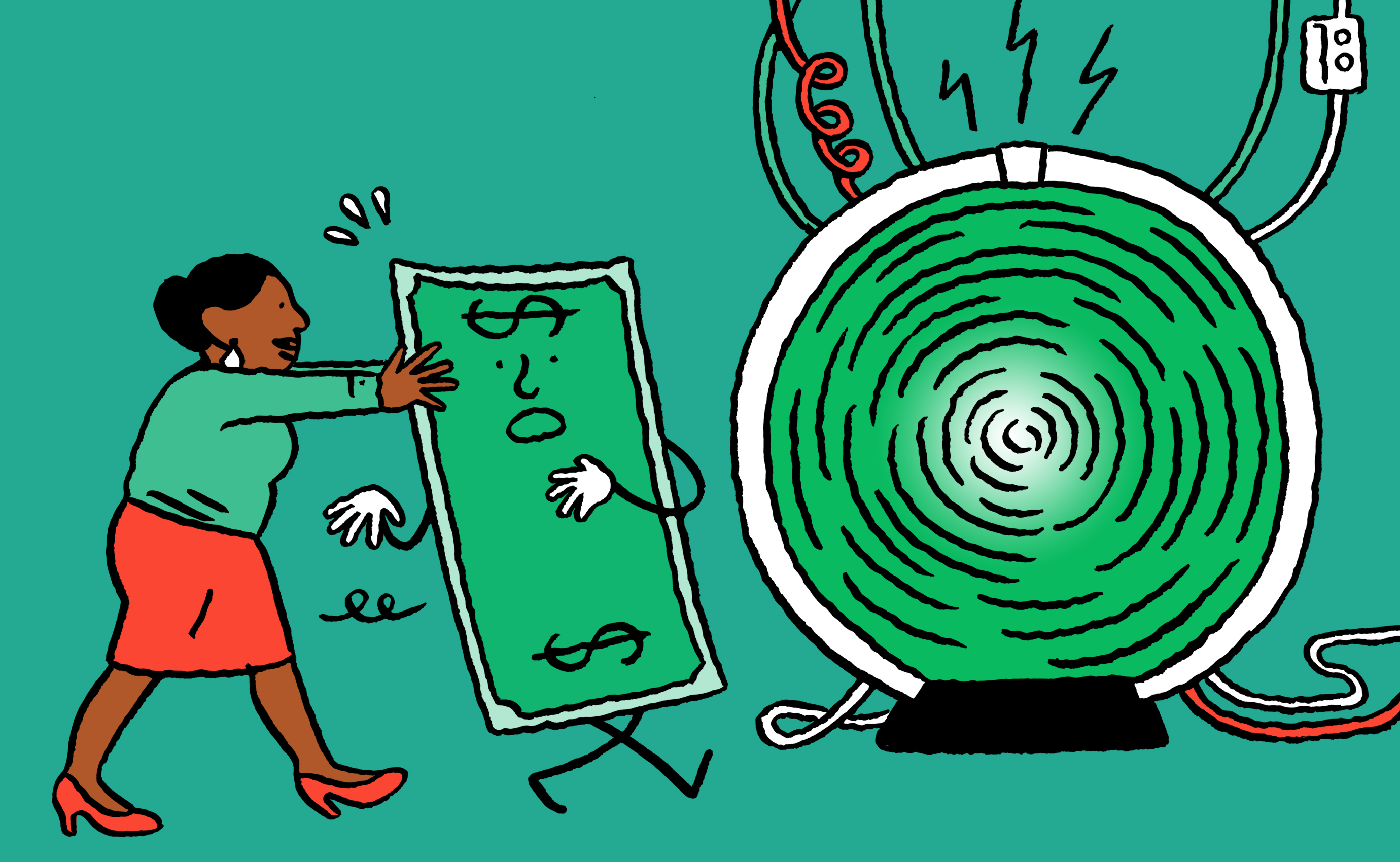Governments test their cryptocurrencies
- Transfer
Bitcoin-like money may appear in countries where cash is in decline or financial networks need updating

The Swedes parted with cash. The number of banknotes and coins in circulation fell to record low levels over three decades. The central bank of Sweden, Riksbank, estimates that cash payments make up no more than 15% of all retail transactions over the past year, compared with 40% in 2010, due in large part to the growing popularity of mobile payment services.
In such a situation, Swedish bankers are interested: is it necessary to introduce a purely digital form of money supported by the government in the country? And if so, is it necessary to use technology similar to the underlying bitcoin?
Riksbank is not the only central bank seriously looking at blockchain - a technology that runs bitcoin and other cryptocurrencies. These systems, also known as distributed transaction databases, are based on computer networks instead of a central authority, such as a bank, in questions of confirming and recording transactions on a distributed database that is practically not subject to breakdowns. Leaders of government banks around the world believe that they have the potential to replace cash and to increase the efficiency of other payment systems.
Cryptocurrencies with the support of central banks will look ironic, given that bitcoin was created as a way to completely get rid of banks. In addition, the idea raises complex questions about the development, creation and support of such systems, as well as how they can affect the financial stability of a country or the whole planet. That is why Riksbank hedges bets, exploring not only distributed databases - which he describes as "unconfirmed, but incredibly fast progressing" technologies - but also traditional, centralized accounting methods for his e-krona project .
Some economists in recent years have arguedthat cryptocurrency tied to money supported by the central bank can give governments the opportunity to issue digital tokens that are very reminiscent of cash. Users of such FedCoin federal coins will be able to enjoy anonymity comparable to bitcoin and will be protected from volatility pursuing cryptocurrencies. The central banks of different countries are exploring this idea, but Sweden seems to have advanced farthest.
But cryptocurrency, accessible to everyone, “raises a whole set of problems,” and will lead to new difficulties for lawmakers, says Rod Garrath , professor of economics at the University of California at Santa Barbara.
Firstly, there is a problem of who should confirm transactions and maintain a distributed base. Even if this issue is resolved, the new system will in some sense be too easily accessible, and at the time of crisis or panic, a situation can easily happen in which investors rush to withdraw their funds. In most modern financial systems, large-scale withdrawals are naturally slowed down by the central bank's ability to issue the paper money required by people. But if the currency is purely digital, there will not be such brakes - panicking citizens will be able to empty their accounts almost instantly, leaving the entire banking system of the country penniless.
New article published by the Bank for International Settlements(this is something like a central bank for central banks) offers a more direct approach than trying to replace cash with cryptocurrency. In an article, Garrat and Morten Beh, a BIS researcher, make an important distinction between a “retail” cryptocurrency like FedCoin and a “wholesale” cryptocurrency that can only be used in banks.
One of the important roles of central banks in the global financial system is to secure large payments between commercial banks. Commercial banks make deposits with central banks, and when they need to send a large payment to another bank, for example, during the sale of a company or home, they can rely on a payment system managed by central banks. The Central Bank processes “clearing”, updating the accounts of all involved parties in order to reflect the new transaction, and “settlements”, that is, the actual transfer of money.
Many wholesale central bank payment systems face a problem: they work in obsolete programming languages and outdated databases, and governments are looking for ways to upgrade them. The central banks of Canada and Singapore recently demonstrated a prototype of wholesale payment systems based on a distributed database, processing clearing and settlements simultaneously using a cryptocurrency token. The Chinese are conducting similar tests .
Since such systems will be limited only to banks, they will not affect monetary policy in the same way as consumer ones, Garrat says: “You are simply replacing the current banking infrastructure of the financial market.” But despite the working prototypes, the technology is still imperfect, and the current stage of modernization attempts is unlikely to result in the use of distributed databases.
Even if these applications were ready to use, they would not solve the problems that Sweden faced. One obvious drawback of reducing the use of cash is that increasing trust in mobile payment systems leads to the isolation of people who do not use them or do not have access to them. These systems are also served by private companies, which means that instead of state institutions, the effectiveness of financial systems in servicing people and the economy will be determined by capitalists.
As a result, the decision of Sweden and other governments regarding the transition to cryptocurrencies will depend on whether people want it, Garrett says: “Will the public require a digital exchange environment that has similar cash properties? Where such demands arise, there will also be pressure on the government to ensure such an environment. Where there will be none, pressure will not appear. ” In any case, all this will take time.
In Russia, too, progress is being made on this issue - both the Central Bank and related specialists, in particular, members of the working group on cryptocurrency risk assessment of the State Duma of the Russian Federation, discuss the benefits of the blockchain - approx. perev.
